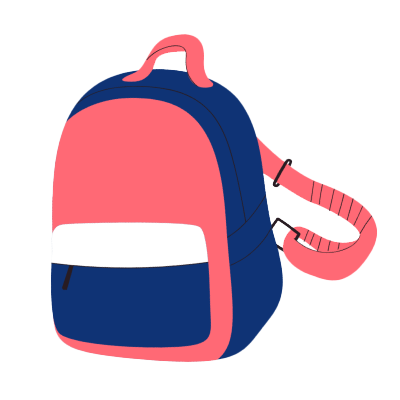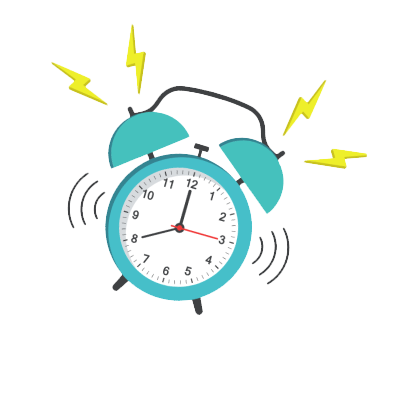
Demonstrating your school provides a hospitable environment where children and young people thrive socially and emotionally
The transition from Primary school to Secondary school, is a critical time for children, which can be conceptualized as a dynamic and ongoing process of psychological, social and educational adaptation over time due to changes in context, interpersonal relationships and identity. Because of this Primary-Secondary school transition can be a ‘window of opportunity’ for growth and learning: children can expand their social network building relationships with a larger group of peers; develop their learning by being exposed to new teaching styles; and develop coping skills and problem-solving skills, through adapting to change. Primary-secondary school transition, however, can also be a time of threat, and 68% of children report difficulties coping with peer and school concerns, which is unsurprising, due to the simultaneous changes children negotiate, that can be significantly emotionally demanding. We want young people to make the most of their transition period and view it as a positive new phase of their lives.
The school asked all starting Year 7 pupils to make a shoe box which describes them. This might be covered in pictures or include their favourite tv programmes, YouTubers or toys. In the first half term of Year 7 each child shares their box with their form group during form time. This activity supports the child’s knowledge of their identity, helps them to introduce themselves to their peers in an adult supported environment and provides information to the Tutor on that child, supporting the sense of being known at school.
The school offered every Year 7 starter a free place at a Summer School the first week of the school holidays. During the week the children are put into groups and do activities which facilitate relationship building (eg. drama/team games, junk modelling) and peer encouragement (eg. climbing wall). The summer school supports: peer relationships; the identification by key staff of children struggling with social and emotional needs; familiarisation with the school site, travel to school, staff members and school meals.
We deliver lessons in Primary schools each year to prepare Year 6s to adapt to the changes at Secondary Schools. These lessons are a bespoke programme with a focus on emotional wellbeing (based on the Resilience Framework), improving expectations and practice knowledge and support with social connections. Alongside the lessons an afternoon tea is provided for parents to attend to celebrate the end of Primary School with their Year 6 child. Parents are provided with high quality information, top tips and a High School readiness checklist, alongside an opportunity to be excited with their child for their next developmental step. Lifecentre also deliver training to create peer support initiatives in Secondary settings to enable Year 9 and 10 pupils to support Year 7s.



Read up on our specific accreditation guidance for this section
Download Guidance


These are the indicators we assess for the award at the bronze, silver and gold level.
School hosts Year 6 induction days for pupils with clear purpose and outcomes
School structures a day which introduces Year 6's to their new environment recognising the impact of the larger physical setting, initial reduced social connection and new exciting learning opportunities on arrival
School recommends and supports transition information workshops for Year 6s in Primary school which inform coping skills
School encourages Primaries to use Year 6 lessons (examples available in the resources area) to ready their pupils for the next phase and provides representation from the Secondary School by a visit.
Pupils are invited to attend events at Secondary School in Year 4 and 5
School encourages Primary schools to bring their pupils to attend a range of activities on their site during Year 4 and 5 (drama/music performances, sporting events, STEM lessons)
School offers summer activities on the school site to Yr 6 Pupils during the summer holiday prior to their start in September
School visits offered to Primary Schools with an intake to school of more than 10%, in Year 4 and 5.
Special arrangements for initial days at the start of Year 7
School provides a range of adaptations to the behaviour policy, use of toilets, access to food and drink and uniform sanctions for the first half term of Year 7 (for a sample adaptations policy see our resources section)
School provides quality parent and pupil information on the environment and how pupils will be supported to adapt
Additional arrangements are in place to pastorally support pupils needs during their first term
School shares with pupils the additional support they can access from teaching staff, form tutors, pastoral/counselling services and quiet spaces.
Year 7 Form tutors and key members of staff have an understanding of transition and the differences between Primary and Secondary school expectations
Interim Year 7 pastoral and behavioural policy is implemented and effective to assist pupils adapt to new expectations
School provides a published policy for adaptations that will take place for Year 7 pupils which is shared with pupils, parents and stakeholders
Whole school staff have an understanding of transition and the differences between Primary & Secondary expectations
School provides transition awareness information to all staff, and it is considered everyone's role to support good transition practice
School uses information gathered from Primary school pupil groupings to inform class formation for Year 7
School delivers peer relationship building activities during the first term of Year 7
School creates 'off-timetable' days/periods of time with a range of activities through which peer relationships are intentionally supported by school
Peer mentoring programme is in place with older pupils assigned to support Year 7 pupils
Protected time (eg.residential) during Year 7 to support and scaffold peer relationships
School provides a range of information to parents in an accessible and inclusive way
School considers important areas to provide key messages on (eg.uniform expectations, homework, timetables, financial expectations, transport) and thoughtfully how these can best be communicated to parents (languages, digital and in person resources). This provision invites feedback and partnership with parents.
School provides quality information to parents about pastoral support and Secondary school differences
School supports parents to become knowledgeable in the pastoral support available to their child in Year 7 and who to contact with concerns. They provide parents with important context on how Secondary school will differ, in an accessible way, and how they can empower their child to make the most of new opportunities and learnign styles.
Parents have the opportunity to feedback on their experience of the Year 6-Year 7 transition, and their feedback shapes ongoing practice
School provides regular, intentional mechanisms for parental feedback on transition experiences.They can demonstrate how this feedback has resulted in adapted transition practice and partnership with parents from Year 7 onwards.
School gathers feedback from all Year 7 pupils on their transition experience
Year 7 pupils are invited to give recommendations for future Year 7 practices
Pupil feedback is evidenced in changes to Year 7 practices the following academic year
School provides additional pastoral support in the first term of Year 7, with bespoke transition plans for the year for pupils with a range of additional needs
Bespoke transition plans are reviewed mid-year 7 with pupil, parents and staff to ensure it is effective
Resources (digital school tour, uniform/behaviour/welcome documents) provided to pupils and parents prior to the start of Year 7 are available in appropriate formats and languages
Feedback sought annually from staff, parents and pupils on the impact of bespoke transition plans for children with additional needs. School can evidence how this feedback has resulted in changes to transition processes and bespoke plans the following academic year.
Download the two forms necessary for you to complete this objective. It is a simple assessment form for you to use when compiling evidence.
Don't forget our Resources page has links and documents to help you as you progress through the Award.
Once you have completed the assessment form for all the objectives please send them to your Moving On Well Award Advisor who will then agree a date to visit your school for the in-person assessment.

Start your school’s journey to Moving on Well Award status today! Register to access an Introductory Pack including a letter for your Headteacher, School agreement and invoice.
Once you are fully signed up, you’ll receive: